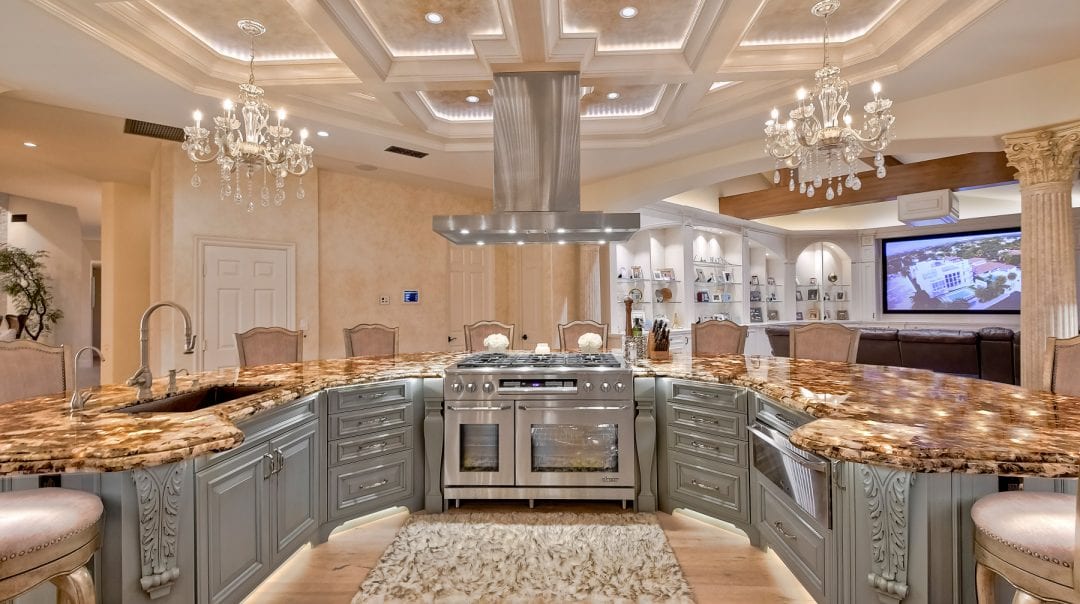
Your kitchen is much more than just a place to prepare meals — it’s truly the heart of your home. It’s where creativity comes alive, nourishing your body and soul, and where family and friends gather to share moments of togetherness and joy. Whether you’re a passionate home chef, a busy parent juggling meals and homework, or someone who loves to entertain, your kitchen should be a space that reflects your lifestyle and supports your daily needs.
If you’ve been dreaming of transforming your kitchen into a space that is not only stylish and inviting but also highly functional and comfortable, you’re not alone. Many homeowners find that a well-executed kitchen remodel can completely elevate the way they use and experience their home. However, achieving that perfect balance between beauty and practicality often requires the expertise of a professionalKitchen remodeler.
Partnering with an experienced kitchen remodeler ensures that your vision becomes reality through thoughtful design, smart layout choices, and the use of quality materials and appliances. They bring invaluable knowledge on the latest trends, space optimization techniques, and technological advancements that make kitchens more efficient and enjoyable.
In this comprehensive article, House Md delves into six amazing kitchen remodeler ideas that will inspire and guide you through the process of creating your dream kitchen. From rethinking your kitchen’s layout to choosing durable yet stunning surfaces, incorporating modern appliances, and selecting lighting that enhances both ambiance and function, these ideas cover every aspect of a successful remodel. Whether you are starting with a modest update or planning a full-scale renovation, these expert insights will help you maximize style, efficiency, and long-term value in your kitchen space.
1. Optimize Your Kitchen Layout for Maximum Efficiency
One of the first steps a kitchen remodeler will focus on is optimizing the layout. A well-planned kitchen layout enhances workflow, making cooking and cleaning easier.
Work Triangle Concept
The classic work triangle connects the sink, stove, and refrigerator. Remodeling your kitchen with this layout in mind reduces unnecessary movement, saving time and energy.
Open Floor Plans
Many modern kitchens incorporate open floor plans that merge the kitchen with dining or living areas. This design creates a spacious feel and promotes social interaction.
2. Choose High-Quality and Stylish Cabinetry
Cabinets are the cornerstone of any kitchen remodel. A skilled kitchen remodeler will recommend cabinetry that combines functionality with aesthetic appeal.
Custom vs. Prefabricated Cabinets
Custom cabinets offer tailored storage solutions and superior craftsmanship, whereas prefabricated cabinets provide affordability and faster installation.
Innovative Storage Solutions
Consider pull-out shelves, lazy Susans, and built-in spice racks to maximize storage and keep your kitchen organized.
3. Incorporate Modern Appliances and Smart Technology
Upgrading appliances can drastically improve your kitchen’s functionality. A knowledgeable kitchen remodeler stays updated on the latest tech trends to recommend the best options.
Energy-Efficient Appliances
Look for Energy Star-rated appliances that reduce energy consumption without compromising performance.
Smart Kitchen Features
Smart refrigerators, voice-activated faucets, and app-controlled ovens bring convenience and modern flair to your kitchen remodel.
4. Select Durable and Beautiful Countertops
Countertops are both practical and aesthetic focal points. A professional kitchen remodeler helps select materials that balance durability with style.
Popular Countertop Materials
- Quartz: Durable and low maintenance with a variety of colors.
- Granite: Natural beauty and heat resistance.
- Butcher Block: Warm, natural look ideal for food prep areas.
Consider Maintenance Needs
Choosing the right countertop depends on how much upkeep you want. Your remodeler can guide you toward materials that fit your lifestyle.
5. Lighting: The Unsung Hero of Kitchen Design
Proper lighting enhances the kitchen’s ambiance and functionality. A skilled kitchen remodeler emphasizes layered lighting to illuminate the space effectively.
Ambient Lighting
Overhead fixtures provide general lighting to brighten the entire kitchen.
Task Lighting
Under-cabinet lights and pendant lamps focus on work areas like countertops and islands.
Accent Lighting
LED strips and spotlights highlight design features, adding depth and warmth.
6. Add Personal Touches with Backsplash and Flooring
The right backsplash and flooring can make your kitchen unique and visually stunning. A professional kitchen remodeler understands how to integrate these elements seamlessly.
Eye-Catching Backsplashes
From classic subway tiles to mosaic designs, backsplashes protect walls and serve as decorative highlights.
Durable Flooring Options
Tile, hardwood, and luxury vinyl are popular choices, each offering different looks and durability levels suited for kitchen traffic.
Conclusion: Bring Your Dream Kitchen to Life with a Kitchen Remodeler
Transforming your kitchen into a dream space takes thoughtful planning and expert execution. By leveraging the expertise of a professional kitchen remodeler, you can ensure your kitchen remodel combines style, efficiency, and functionality. Whether you want a modern open-plan kitchen or a cozy traditional space, the ideas shared here will guide you in making smart choices. Ready to start your remodel journey? Contact a trusted kitchen remodeler today and bring your vision to life! Our website is your ultimate source of valuable information.
FAQ Section
1. How do I choose the right kitchen remodeler?
Look for experienced professionals with strong portfolios, positive reviews, and clear communication. Verify licenses and insurance before hiring.
2. What is the average cost of a kitchen remodel?
Costs vary widely based on size, materials, and design complexity. On average, kitchen remodels range from $15,000 to $50,000 or more.
3. How long does a kitchen remodel usually take?
Most kitchen remodels take between 6 to 12 weeks depending on the scope of work, availability of materials, and labor.





